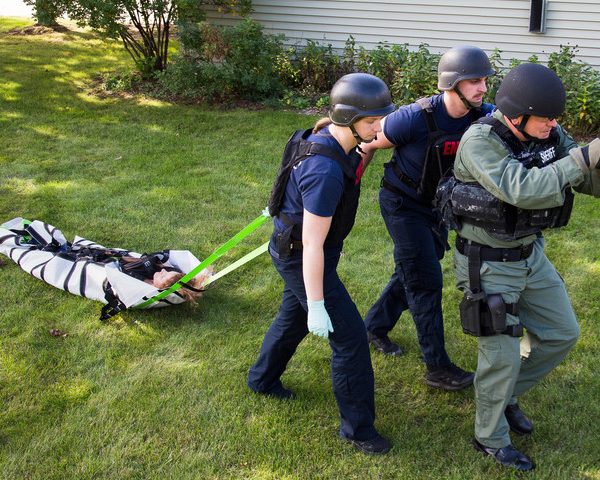According to the CDC, emergency medical technicians (EMT) and paramedics experience significantly more injuries than the general workforce. A significant portion are lower back injuries as a result of lifting, moving and handling incapacitated patients.
How Dragging Patients Protects EMTs and Paramedics
Topics: EMS Health
Coping with Active Shooter Situations: Tips for First Responders
The incidence of stress disorders among first responders is significantly higher than the national average. Our recent blog about EMS post-traumatic stress disorder (PTSD) reveals that 34 percent of EMS personnel were diagnosed as suffering from PTSD at one time or other. This statistic is from a University of Phoenix survey of 2,000 paramedics, firefighters, police officers and nurses. This information supports earlier work from the National Center for PTSD that 33 percent of survivors from mass shooting incidents develop acute stress disorders (ASD).
Topics: EMS Health
How to Protect Your EMS Staff from Fentanyl Exposure
According to the United States’ Drug Enforcement Agency, Fentanyl is a synthetic opioid that is 30-50 times more potent than heroin and up to 100 times more powerful than morphine.
Topics: EMS Health
Protecting First Responders from Infectious Diseases
As a first responder, it may seem that the world is becoming an increasingly hostile place. Not only are you and your team faced with an increased incidence of traffic accidents and domestic violence that you respond to, now there are increased occasions in which you could be the victim yourself; situations such as an active shooter event, terrorist chemical agent incident, and even infectious organism contamination.
Topics: EMS Health
First Responder PTSD Support: Florida Leads the Way
Post Traumatic Stress Disorder (PTSD) can be a serious issue for many first responders. This Washington, DC newscast references a University of Pheonix commissioned survey which reports that 80% of firefighters experienced exposure to a traumatic event, and the numbers for police and EMTs is even higher with over 90% reporting exposure to trauma. This extensive trauma exposure has consequences, with 33% of first responders surveyed reporting that they had been formally diagnosed with a mental health disorder, such as PTSD. Florida has recently passed legislation to help deal with this issue.
Topics: EMS, EMS Health





